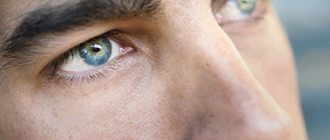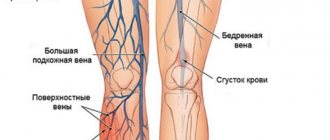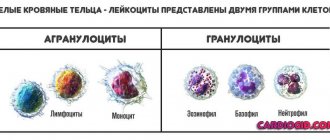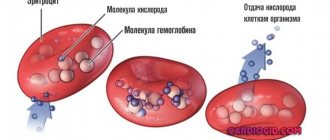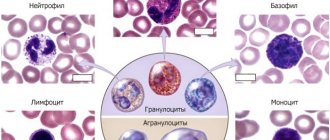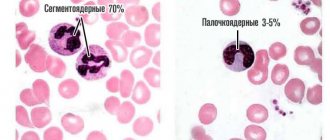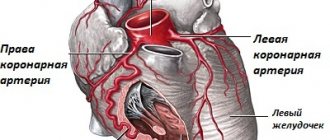The quality of feces, like the process of defecation itself, is an indicator of human health. Ideally, everything should happen every day, at approximately the same time, quickly and without causing discomfort.
Any inclusions in the stool - blood, mucus, undigested pieces of food - a change in color should alert the patient. If the temperature rises, vomiting occurs and the general condition worsens, self-medication and self-diagnosis are inappropriate.
Causes of diarrhea
- bacterial and viral infections (acute intestinal infections - AII), parasitic infestations. Acute respiratory infections are second only to acute respiratory infections (ARVI) in prevalence;
- enzyme deficiency: absolute - occurs, for example, with diseases of the pancreas, intolerance to milk sugar - lactose, and relative - with an excess of indigestible foods in the diet (food rich in plant fiber and fats), overeating;
- chronic diseases of the gastrointestinal tract (chronic colitis, enteritis, Crohn's disease, etc.) - when its mucous membrane is damaged, the absorption of nutrients is impaired;
- violations of the quantitative and qualitative composition of the intestinal microflora (dysbacteriosis);
- surgical pathology (appendicitis, polyps, intestinal tumors);
- nervous overstrain, emotional stress (“bear disease”);
- vitamin deficiency (deficiency of vitamin B2, niacin, etc.);
- side effects of certain medications (sorbitol, magnesium preparations, antacids, some antihypertensive drugs, antibiotics, antidepressants, non-steroidal anti-inflammatory drugs, etc.), overdose of laxatives.
It is difficult to find a person who has never suffered from diarrhea in his life - such a problem happens to each of us more than once. Perhaps that is why they often treat it lightly, letting things take their course and not seeking medical help in a timely manner. Meanwhile, “banal diarrhea” can be a manifestation of very serious, sometimes life-threatening diseases. If diarrhea develops, you need to remember the main alarming symptoms that require immediate medical attention:
- the appearance of mucus and blood in the stool;
- stool has a tar-like color and consistency (sometimes accompanied by vomit that resembles coffee grounds);
- passing copious watery stools more often than 15-20 times a day;
- copious light-colored stools against the background of a drop in body temperature below normal;
- combination of diarrhea and high fever;
- a combination of diarrhea, abdominal pain and severe vomiting;
- diarrhea lasts more than three days, despite prescribed treatment;
- diarrhea is accompanied by disturbances of consciousness;
- diarrhea for more than 2 days in an elderly person or a child under one year old;
- diarrhea appears periodically for no apparent reason, accompanied by weight loss and weakness.
If you have detected at least one of the listed symptoms, there is no need to hesitate. But this does not mean that in other cases seeking medical help is not necessary. Particularly serious consequences of diarrhea
may occur in old age and childhood, due to the particularly rapid onset of dehydration.
Diarrhea has a variety of not only causes, but also manifestations. First of all, this concerns the appearance of excreted feces: their consistency, color, visible impurities. This is very important for diagnosis. Let's look at the most common options.
Types of alcohol
The type and degree of drink consumed play a big role in determining the cause of a given symptom.
After beer
Low-alcohol products most often cause disturbances in the structure of feces, since the volumes of beer consumed can be quite impressive. Water is not absorbed into the intestinal walls due to ethyl alcohol. Fermentation processes and increased frequency of bowel movements occur.
After the wine
Red wine stimulates the production of digestive enzymes and speeds up the digestion process. The food does not have time to undergo proper processing, and the liquid is not absorbed into the mucous membranes of the gastrointestinal tract. All these processes occur against the background of dysbacteriosis, and there is a frequent urge to go to the toilet.
After champagne
Champagne causes active fermentation in the intestines. Preservatives and flavorings, present in almost every bottle of champagne, play an important role. In addition, the sweetish taste of the drink leads to an increase in the volume of its consumption.
CODING AT HOME
After vodka
Vodka has an aggressive effect on the mucous membranes of the gastrointestinal tract, destroying beneficial microflora. In the case of chronic diarrhea, the disease does not stop, and the pathological processes in the organs only increase.
After cognac
Ethanol has a detrimental effect on the mucous membranes of the mouth, stomach and intestines. Neurohumoral regulation is disrupted, and even a small amount of cognac can lead to serious disorders in the body.
After whiskey
It is a mistake to believe that expensive alcohol products cannot cause unwanted reactions. Ethanol has a detrimental effect on the liver, pancreas and other organs of the gastrointestinal tract, regardless of third-party components.
Do you want to do an urgent detox after drinking alcohol? The procedure can be performed at home. Consult with a specialist at the Zdravnitsa Center for Vocational Treatment and Rehabilitation. The hotline is open 24 hours a day.
Watery diarrhea (“water diarrhea”)
Its causes can be both bacterial and viral infections. The most severe of them, of course, is cholera, but salmonellosis and acute intestinal infections of viral etiology are much more common. The small intestine is affected by pathogen toxins, this is accompanied by the release of large amounts of water and salts dissolved in it into the intestinal lumen (stool may resemble “rice water”), without adequate replenishment of electrolytes, fatal dehydration can occur. Requires hospitalization in a specialized hospital (intestinal infections department).
Self-diagnosis and treatment are unacceptable. Diarrhea due to intestinal infections may not always be accompanied by nausea, vomiting, abdominal pain and fever (in weakened patients, as well as in the terminal stages of cholera, body temperature may drop below normal); treatment directly depends on the type of causative agent of the disease, which is impossible to determine at home.
Scarlet blood
Hemorrhoids are the cause of bleeding
The addition of bright scarlet blood to diarrhea is a sign of bleeding from the lower gastrointestinal tract. The doctor will suggest:
- fissures in the anus;
- the appearance of fistula tracts, paraproctitis;
- damage to hemorrhoids;
- the presence of malignant neoplasms in the rectum, large intestine;
- erosion of various origins;
- perforation of the ulcer.
Depending on the intensity and volume of bleeding, the patient may complain of dizziness, weakness, and pain. As a rule, the temperature does not rise.
Black diarrhea
The most serious reason that can cause black loose stools is esophageal, gastric or intestinal bleeding (for example, varicose veins of the esophagus, gastric or duodenal ulcers, tumors). When blood comes into contact with digestive enzymes, it turns black. Tar-like stool indicates fairly heavy bleeding. If it is localized in the stomach, sometimes coffee-ground vomiting occurs. Critical blood loss can occur quite quickly - the patient must be taken to a surgical hospital as soon as possible. Sometimes blackening of the stool is caused by taking certain medications (activated carbon, iron, bismuth, vitamin-mineral complexes).
Establishing diagnosis
The medical history focuses on the frequency and type of stool, and also relies on associated symptoms. The addition of temperature and vomiting indicates an infectious lesion of the gastrointestinal tract. The nature of the diet matters. Information about diarrhea, which began after the introduction of certain cereals (oats, wheat), indicates gluten enteropathy (celiac disease), information about a violation of the type of stool after including other products in the diet indicates food intolerance.
When examining the patient, the presence of signs of dehydration is taken into account, the general condition is assessed, and the abdomen is examined and palpated. Delay in physical development indicates more serious abnormalities in the body. In children with suspected cystic fibrosis, the condition of the internal organs is assessed.
Laboratory and instrumental research includes:
- determination of electrolyte levels during dehydration;
- determination of sodium and chlorine concentrations if cystic fibrosis is suspected;
- if an infectious process is suspected, examination for viruses, bacteria and parasites.
With celiac disease, an increased amount of specific antibodies is found in the blood. Diet changes can be used for both diagnosis and treatment.
White diarrhea
Often occurs in children under one year of age. In this case, it can be caused by feeding with certain artificial formulas, overfeeding with milk, introducing new foods into complementary foods, an excess of hard-to-digest carbohydrates, and is sometimes observed during teething.
More serious causes of white diarrhea, which can occur in both children and adults: disorders of the gallbladder (partial or complete obstruction of the biliary tract), hepatitis (jaundice).
Whitening of the stool can be caused by medications that interfere with liver function (tetracycline, aspirin, ibuprofen, paracetamol, methotrexate, oral contraceptives, anti-tuberculosis drugs).
Loose stools after alcohol
In order to differentiate the exact cause of defecation disorder, it is necessary to pay attention to the characteristics of the person’s current condition and accompanying symptoms.
Diarrhea and Vomiting
Nausea and vomiting are frequent accompaniments of intoxication. In addition, vomiting may indicate an exacerbation of gastritis, ulcers or pancreatitis. If vomiting lasts longer than a day and is associated with food intake (before or after meals), you should urgently consult a doctor for timely treatment.
Diarrhea with Water
Secretory (watery) diarrhea occurs due to dysfunction of the small intestine. Experts recommend taking enterosorbents to remove toxic substances from the small intestine and coat its walls. Gastric lavage will also help a person in case of poisoning. To do this, drink two glasses of salted water at room temperature and press on the root of the tongue. The procedure is repeated until clean wash water appears.
Yellow diarrhea
Due to frequent bowel movements, the stool does not have time to color and acquires a yellow tint. The problem may lie in dysfunction of the liver and gallbladder. A timely consultation with a specialist, stool and blood tests for bilirubin and an ultrasound of the abdominal cavity are necessary.
TREATMENT OF ALCOHOLISM AT HOME
Green diarrhea
An alarming symptom that may indicate the following pathologies:
- Enteritis;
- Gallbladder disorders;
- Internal bleeding;
- Diseases of the liver or pancreas;
- Ulcer of the stomach and duodenum.
If green stool appears, an urgent visit to the doctor is necessary. Slowing down can lead to serious consequences for the entire body.
Diarrhea with bile
Ethyl alcohol causes disruption of the liver and bile ducts. Bile with a high concentration of cholesterol accumulates in the ducts. The contents of the gallbladder enter the intestines and mix with the feces. In this case, pain may appear in the right hypochondrium.
Bloody diarrhea
Blood in the stool in the form of bright spots without clear boundaries indicates the presence of a stomach and duodenal ulcer. The presence of dark, almost black bloody streaks indicates possible internal bleeding.
Fever and diarrhea
The appearance of a temperature indicates poisoning from low-quality products. In this case, the temperature may rise above subfebrile values and reach forty degrees. If the temperature rises above 38 degrees, you should urgently call a doctor at home.
In addition, hyperthermia in this case can occur due to:
- Allergic reaction to ethyl alcohol;
- Disorders of the nervous system and fatigue;
- Development of inflammatory diseases of the gastrointestinal tract.
Self-medication will only harm the body: you need to seek qualified help.
Red diarrhea
Red, loose stools may indicate bleeding from the intestines. The cause may be trauma to the hemorrhoids or an open ulcer of the stomach and duodenum. Hemorrhoids are a common problem for alcohol addicts with an impressive history of drinking alcohol.
Diarrhea with foam
Often, foamy stool has a yellow or green tint - this is a consequence of dysbiosis and other disorders of the gastrointestinal tract. Often the problem is caused by consuming snacks high in carbohydrates. Poor quality food leads to fermentation of the intestinal contents, as a result of which the structure of the feces is disrupted.
Prolonged diarrhea
Prolonged diarrhea, along with other symptoms, often signals a chronic disorder of the gastrointestinal tract. Most often, long-term disorders of the gastrointestinal tract occur in heavy drinkers.
Constant diarrhea
If diarrhea is a constant companion of alcoholic drinks, you should avoid them. Otherwise, there is a risk of serious illness.
Black diarrhea
Black stool is a signal of internal bleeding. The appearance of black feces indicates the opening of an ulcer and requires urgent medical attention.
Dark diarrhea
Dark green stool is a consequence of dysbiosis. Conditionally pathogenic microflora grows, and “useful” bacteria are destroyed. As a result of fermentation processes, the color of feces changes.
Severe diarrhea
Intense diarrhea signals severe intoxication. The reason may be the consumption of drinks of dubious production or prolonged binge drinking. There is a serious risk of dehydration because the body loses minerals along with the fluid.
I have a stomachache
You can judge the causes of pain by its location:
- Bursting pain in the right hypochondrium - liver dysfunction;
- In the navel area – diseases of the small intestine (enteritis);
- Pain in the epigastric region - gastritis or ulcer;
- In the left hypochondrium - pancreatic dysfunction.
If pain occurs, you should visit a specialist and undergo a series of diagnostic procedures.
Withdrawal from binge drinking from 4,700 RUB
Possible complications of diarrhea
- dehydration (even death): this is indirectly evidenced by such signs as dry lips, tongue, decreased turgor of the skin and eyeballs, severe thirst, rapid breathing, and rare urination;
- loss of salts by the body (occurs in combination with loss of fluid) can cause convulsions;
- exhaustion of the body, hypovitaminosis (with chronic diarrhea);
- intoxication (poisoning with bacterial or viral toxins);
- hemorrhoids, rectal prolapse, ulcerations and fissures.
Blood color and diarrhea
When veins or clots of biological fluid appear, you need to pay attention to their color and quantity. During examination, this information is reported to the doctor, as this makes it possible to suggest the cause of the pathological process and speed up diagnosis.
| Color, quantity | Possible reason |
| Scarlet. | Injury. Haemorrhoids. Cracks in the anus, rectum. |
| Black, black clots. | Upper parts of the gastrointestinal tract. |
| Black in large quantities. | An open or perforated ulcer in the upper gastrointestinal tract. |
Treatment
For treatment of diarrhea, it is best to turn to professionals, since diarrhea can have many causes, and the approaches to treating each of them are fundamentally different.
If, due to special circumstances (for example, being in a hard-to-reach area), it is impossible to immediately receive medical help, the main treatment consists of replenishing fluid and salt losses, as well as reducing intoxication (if there is an infection). For this purpose, there are special salt mixtures (for example, rehydron, oralite), which are diluted with water according to the instructions and constantly taken orally in small portions, in small sips. To reduce intoxication, sorbents (activated carbon, etc.) are used, which do not allow microbial toxins to be absorbed.
You should be especially careful with drugs that slow down intestinal motility, since delayed excretion of infected stool leads to increased intoxication. It should also not be done without identifying the causes of diarrhea
take antibiotics.
All of the above measures can be regarded only as temporary, and at the first opportunity, in any case, it is necessary to seek medical help in order to clarify the diagnosis and adjust the treatment of diarrhea.
So, for example, if the cause lies in infection, the doctor, after conducting tests, will select a suitable antimicrobial agent. In case of dysbacteriosis, which can be both a cause and a consequence of diarrhea, it is advisable to take special medications that restore normal microflora. Enzyme deficiency may require taking enzyme medications.
Is intestinal disorder a sign of binge drinking?
When you binge drink after drinking alcohol, diarrhea becomes regular. This occurs due to concomitant diseases (often pancreatitis and cirrhosis), as well as the body’s inability to get rid of toxic substances. A new portion of ethanol enters the gastrointestinal tract every day, and attempts to clear it of it are futile. You can get rid of diarrhea during heavy drinking only through detoxification and comprehensive treatment of alcohol addiction.
Diet for diarrhea
Diet is one of the components of treatment. Since with any diarrhea there is irritation (and often severe inflammation) of the intestinal mucosa, food should be as gentle and easily digestible as possible. For diarrhea it is recommended:
- drink more (drinks at room temperature, warm), the preferred drinks are simple drinking water, water-salt mixtures, warm tea, weak jelly, astringent and enveloping herbal teas and infusions. Alcohol, milk, fruit juices, carbonated drinks should be avoided;
- do not eat if you have no appetite (this is a protective reaction of the body);
- When you have an appetite, you can start with secondary broths, oatmeal or rice porridge (in water), dried white bread, mashed potatoes, boiled lean meat (a little, pureed). Then you can try boiled and baked vegetables and fruits. Food should be semi-liquid, homogeneous, it should be taken often and little by little;
- Until stool is completely normalized (and preferably for some time after), fresh fruits and vegetables, as well as alcohol, fatty, spicy and fried foods should be avoided.
Prevention
Following these recommendations will help stop diarrhea after alcohol. To improve the condition of the body of an alcohol addict during binge drinking, one should get rid of the root cause of intoxication - alcohol addiction. Detoxification will help get rid of acute poisoning, while psychological problems associated with alcoholism remain unresolved. A rehabilitation course in a drug treatment clinic will help you get rid of your addiction and change your life for the better.
Article prepared by an expert
Terekhova Anna Vladimirovna
psychologist-consultant on socio-psychological work with addicted clients and their families. More than 9 years of experience.
Similar articles:
Feelings and emotions of a codependent person. How to learn to feel again?
How long does it take for drugs to leave the body?
Modern types of drug addiction
Why can't you completely control a drug addict?
How to help a drug addict at home
on ““Diarrhea after alcohol””
- Katerina:
November 6, 2021 at 09:04
If there is a lack of vitamins, treatment is necessary. Diarrhea due to colitis is treated with drugs that relieve inflammation. Taking enterosorbents is an etiotropic and pathogenetically substantiated method of treating, primarily, secretory diarrhea. Most often, this type of diarrhea is caused by viruses and the prescription of antibiotics in this case is inappropriate. Enterosorbents absorb pathogenic microorganisms and toxins and remove them from the body in a bound state naturally. Treatment with enterosorbents is used both in complex therapy together with antimicrobial drugs, and as independent therapy
Answer
- Tolik:
November 7, 2021 at 04:41 pm
Loperamide is available in forms that ensure the drug dissolves on the tongue in a few seconds (since 2009, loperamide has been available in the format of lyophilized tablets made using Zydis - Imodium Instant Melts technology. After taking measures to relieve symptoms, you should find out the causes of diarrhea by analyzing the epidemiological situation (presence of outbreaks diseases, season, food consumed, antibiotics, patient visits to clinics or travel) and clinical picture (presence of blood in stool, abdominal pain, dysentery, inflammation, emaciation).If symptoms are severe, inflammation, blood in stool or suspected outbreak infectious disease, it is required to take a stool test, inform sanitary and quarantine control services and store frozen samples of stool, water and food consumed by the patient
Answer
- Roller:
November 12, 2021 at 12:34 pm
I have fairly frequent diarrhea after drinking. Could this be a liver problem? So it doesn’t matter whether I drink vodka or beer, the result is the same in the morning. Maybe the pancreas should be checked? It's just a complete inconvenience.
Answer
- Kate:
November 17, 2021 at 03:27 pm
An interesting topic)) Sometimes my husband was faced with the problem of diarrhea, and by the way it was very difficult to solve. What helped us were Essentiale pills and an alcoholic diet, that is, a complete lack of drinking. And then every morning after the feast, it was sometimes accompanied by diarrhea and vomiting, despite the fact that I never drank too much, due to the condition - a cucumber, and the body reacted like this. If you have such a problem, I recommend that you still pay attention to the liver...
Answer
- Igor Ivanovich:
November 18, 2021 at 08:10
I am 58 years old. And I have very frequent loose stools after drinking alcohol. I didn't even think that this could be such a serious problem. It seemed quite normal, such mini-poisoning of the body. You need to watch your body. Useful article.
Answer
- Melissa:
November 23, 2021 at 10:14 am
Thank you for the article! really useful and all the information in one place...
Answer
- Artyom:
March 7, 2021 at 10:25 pm
I am 30 years old. I drink beer, vodka tincture, champagne, from everything I run all night to the toilet, in the morning everything goes away, I drink a maximum of one and a half liters of beer and after half an hour a terrible seething begins and I run to the toilet. Fatty foods also make me run to the toilet, especially if I’ve eaten a couple of pieces of fat and you sit in the toilet all night, the color is yellow. From the description, I understood one reason: gastritis.
Answer

